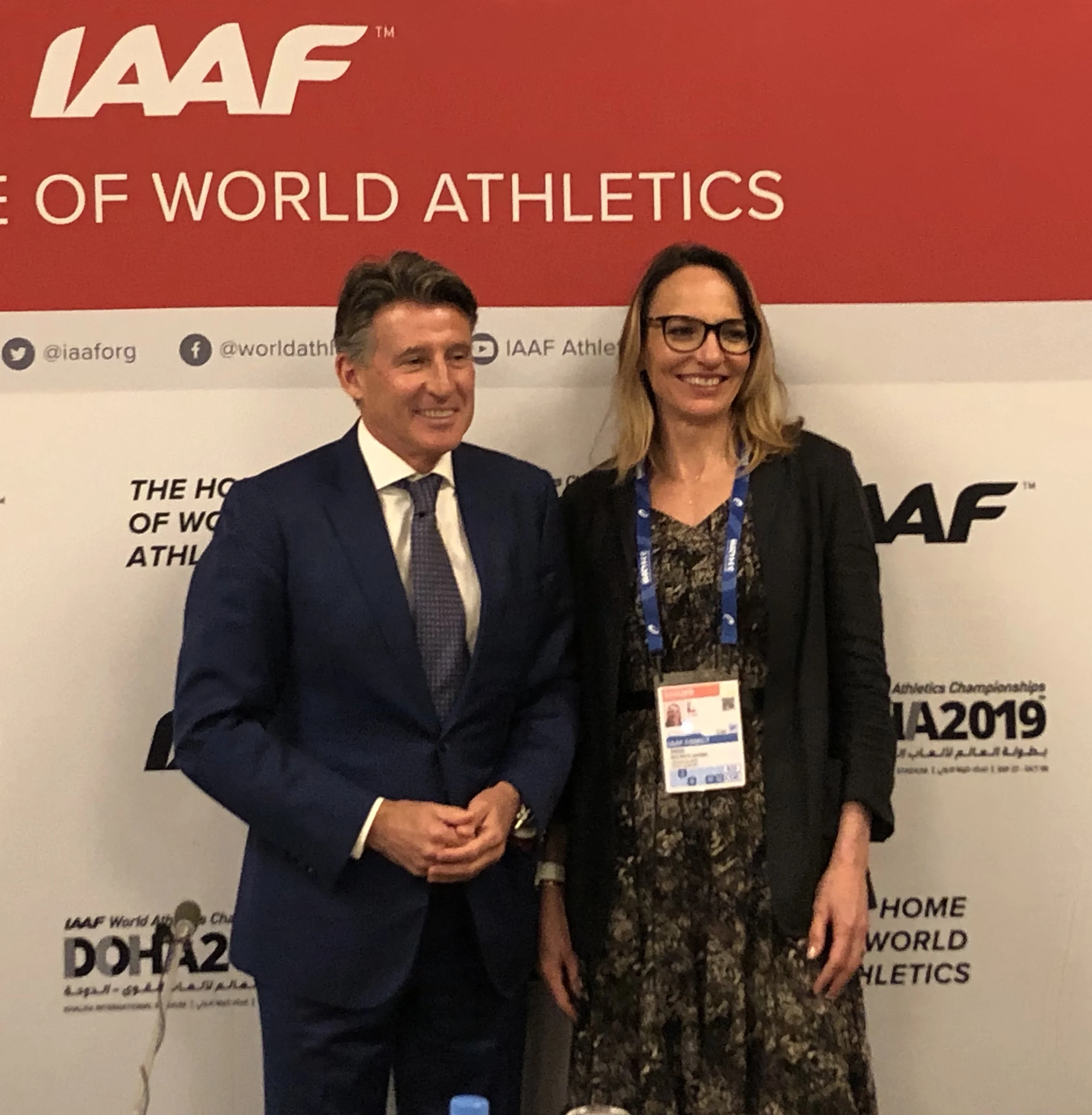DOHA, Qatar — So much to unpack from two hours of voting here Wednesday at the IAAF congress, so let’s get to it:
1. Seb Coe was unanimously re-elected as president. He gets four more years.
In 2015, Coe ran a tough race against Sergey Bubka of Ukraine. This time, Coe ran unopposed.
He got 203 votes, out of 203.
This was a secret ballot. So for any of you who thought there might be even a single dissenter in a world body that over Coe’s first four-year term has seen multiple controversies — among them, the Russian doping matter and a legal dispute over differences of sexual development personified by the South African 800-meter champion Caster Semenya — think again.
“Look,” Coe said in a news conference afterward, “it has been a tough four years. There’s no point in not being naive or coy about that,” adding a moment later, “We have to grow the sport. We have to reach out beyond the beltway of athletic fans.”
2. The IAAF is 107 years old. On Wednesday, Ximena Restrepo became its first female vice president.
IAAF president Seb Coe and newly elected vice president Ximena Restrepo
The Olympic movement talks a lot about putting women in senior leadership positions. The IAAF has taken the aggressive position that, beginning with this election cycle, mandating a female vice presidency and other key executive slots is the way to walk the walk.
Restrepo, 50, is the bronze medalist in the women’s 400 at the Barcelona 1992 Games, the first Colombian woman to win an Olympic medal in track and field. Hard-core U.S. track fans might remember her as the 1991 NCAA champ in that event for the Nebraska Cornhuskers. She is married to the Chilean shot putter Gert Weil, and their daughter Martina runs at Tennessee.
Restrepo has been part of what the IAAF has called its “Gender Leadership Working Group,” chaired by the American Stephanie Hightower, who until Wednesday had been on the IAAF Council as well. Service on that task force proved key to Restrepo’s victory, along with campaigning in what the IAAF calls its area — in this case, the western hemisphere — and in Asia.
She got 85 votes. Abby Hoffman of Canada took second with 68, Sylvia Barlag of Holland third with 53.
“It’s a great moment for me and for my country,” Restrepo said in a post-victory news conference.
3. Prince Nawaf of Saudi Arabia was elected to one of the other vice presidential positions, along with Bubka, Geoff Gardner of the Norfolk Islands (out in Oceania). Nawaf prevailed over Alberto Juantorena of Cuba in a run-off.
4. Juantorena was later elected to the Council.
5. So was Willie Banks of the United States, the latest act in a long-running drama involving Bob Hersh and Hightower and the delegates to the USA Track & Field annual meeting, who dimly — if that, it has to be said — understand the ways of the IAAF. Hersh is a former IAAF vice president.
This is no knock on Banks, who is a gentleman. Moreover, he had the hard job of campaigning here without his luggage — which arrived a day after he did. No fun. He handled it with grace and a smile.
But understand:
Banks finished 10th of 13th among the 13 who got in. To be sure, that was enough to get him elected -- almost surely because an American has historically been all but assured of an IAAF Council seat — but hardly an overwhelming show of support. He got 101 votes. Compare: Hiroshi Yokokawa of Japan, the top vote-getter, received 142.
Compare again: four years ago, Hightower got 163. That was the most for one of six Council seats then designated to be filled by women. Ten candidates stood for election.
This year, when the IAAF was deliberately pushing women forward, the USATF delegates opted instead for Banks and personality politics.
There’s a cascading effect to this that holds long-term ramifications.
Coe will serve out this second four-year term, and then what?
If the USATF assembly had instead gone with Hightower, and she — leader of the IAAF gender task force — had run for the IAAF vice presidency position, her odds of being elected Wednesday would have been significant. Then she would have been in the position to run for the presidency of this federation, which after these championships will formally become known as World Athletics, or WA.
U.S. influence in the Olympic movement is, in a word, weak. To have an American, and a woman, at the head of track and field — which as its proponents always claim is No. 1 in the world? That would have been huge.
Instead, the woman who got elected Wednesday — as Coe emphasized, “the first female vice president the IAAF has ever had” — is Restrepo.
Meanwhile, for all the Hightower haters out there, her chances of becoming president may have dimmed but don’t count her influence out just yet. She is resourceful and understands this game. Stay tuned.
6. Moments before the program got underway Wednesday, the Athletics Integrity Unit announced that Ahmad Al Kamali — a member of the IAAF Council — would be ineligible to stand for re-election because of what it called a “potential violation” of the election rules. No further details were provided.
Kamali is president of the UAE track and field federation and has long been involved with the Dubai Marathon. In 2015, when he was elected to the IAAF Council, he denied allegations he had offered Rolex watches in a bid to win votes at the Confederation of African Athletics Congress.


